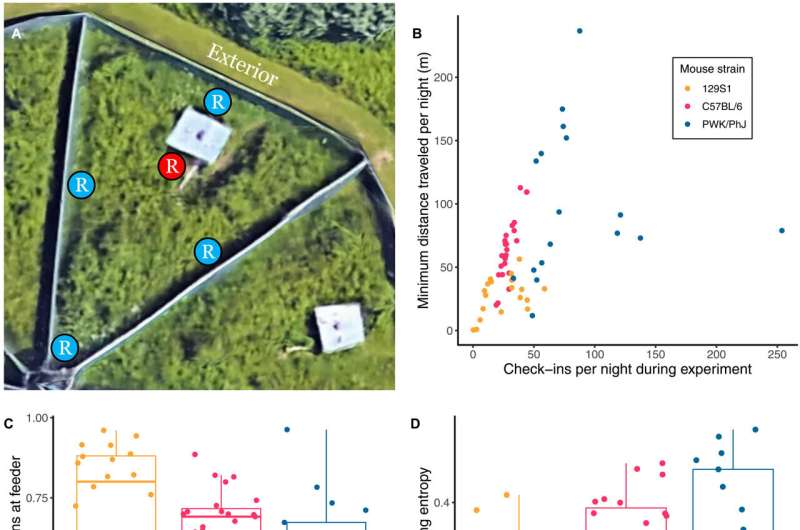This article has been reviewed according to Science X's and . have highlighted the following attributes while ensuring the content's credibility:
fact-checked
peer-reviewed publication
trusted source
proofread
The social life of mouse immune systems

Hanging out a lot with the same crowd can make immune systems of individual animals similar, even if the crowd is not related. That's according to a published in Science Advances that teased out connections between social behaviors and immune cell profiles of lab mice which were allowed to "rewild" and do as they pleased in controlled, predator-free outdoor enclosures.
SFI External Professor Andrea Graham (Princeton University) and co-authors carefully tracked the behaviors of mice from three inbred strains, including their socializing with other mice, to see how it correlated to their immune systems' T and B cell profiles.
They found that the more two mice hung out, the more similar their immune system profiles got. In fact, their immune profiles became even more similar than those of siblings or mice that had been similarly infected. The results highlight the immunological importance of shared spaces and activities, as well as social networks.
More information: Alexander E. Downie et al, Spatiotemporal-social association predicts immunological similarity in rewilded mice, Science Advances (2023).
Journal information: Science Advances
Provided by Santa Fe Institute













